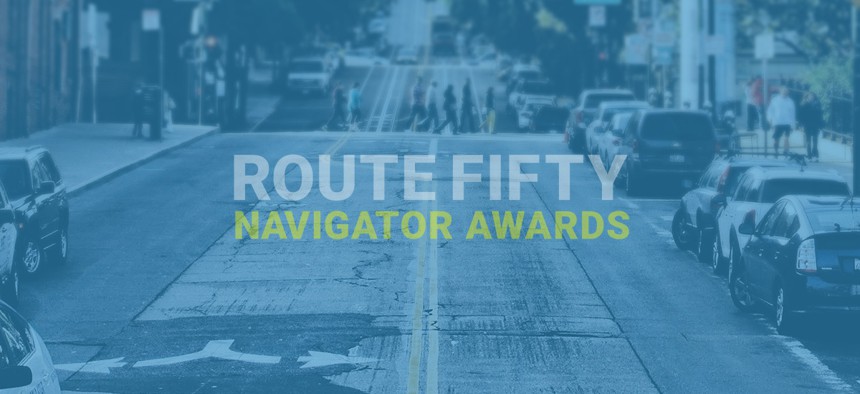Navigator Award Finalist: Jean Ann Lawson, Chief Performance Officer, Kansas City, Mo.


Connecting state and local government leaders
Looking to improve agency customer service? The City of Fountains provides great case studies that showcase an impressive transformation.
This is the 17th in a series of profiles on the 50 finalists for Route Fifty’s Navigator Awards program. The first 10 finalists were from the Government Allies and Cross-Sector Partners category. Finalists 11-20 were from the Agency and Department Leadership category. Finalists 21-30 were from the Executive Leadership category. Finalists 31-40 were from the Next Generation category. Finalists 41-50 were from the Data and IT Innovators category. Explore our complete list of 50 finalists.
KANSAS CITY, Mo. — Tracking customer service requests with Post-It notes and letting city hotline voicemail messages sit unlistened to before deleting them in bulk are certainly not good best practices for local government agencies. But those eyebrow-raising examples weren’t uncommon in certain parts of the municipal government in Missouri’s largest city.
“Where we started, it wasn’t a very pretty picture,” Kansas City’s chief performance officer, Jean Ann Lawson, said on Tuesday during a session on local government technology at the International City / County Management Association’s 102nd annual conference, which took place in the City of Fountains, a place that’s now well known as a municipal leader in customer service practices.
Lawson, who is a Route Fifty Navigator Award finalist in the Agency and Department Chiefs category, was sharing insights on how Kansas City implemented a new customer relations management strategy—built around 3-1-1—across municipal agencies as part of ongoing City Hall efforts to improve agency performance through strategic business plans and smart management informed by diligent data collection and analytics.
It was a transformation that’s taken more than a decade and at first required a lot of time to assess the various practices being used across Kansas City agencies.
“As we began to interview departments,” Lawson said, “we quickly learned that we needed to go deeper into the organization.”
That led to new standards for data collection and rolling out a framework to phase in performance management and accountability practices. Before that, some agencies were very lacksidical with responding to service requests, as Lawson shared another management blemish from Kansas City’s prior experience: “How do you know it’s done? The customer didn’t call back to complain a second time.”
While those types of stories are not always the ones that cities like to share, they’re important to share with others and to show just how much of a transformation is possible through a sound strategy and accountability. Lawson urged local governments embarking on efforts to roll out customer relations management improvements to not reinvent the wheel.
“There have been enough cities that have done [request for proposals] on CRM systems,” she said. “Learn from our mistakes.”
But also learn from Kansas City’s successes, especially in seeking customer feedback through quarterly citizen surveys and follow-up surveys regarding 3-1-1 call experience. Those 3-1-1 surveys consist of three simple questions, which haven’t changed in more than a decade, as the Harvard University Kennedy School of Government’s Ash Center profiled in August 2015 as part of a series on Data Smart City Solutions: “Not only are they straightforward and easy to answer, keeping them the same allows effective analysis of the data over time.”
Compared to the national average, Kansas City residents are more satisfied with their city services. In June, Kansas City received an ICMA Center for Performance Analytics Certificate of Excellence as a government that demonstrates “a commitment to collecting, using, and sharing performance data.”
And that commitment continues with Kansas City’s participation in the What Works Cities program with support of the Bloomberg Philanthropies.
Route Fifty is pleased to honor Lawson’s dedication along with the work that’s been done—and continues—to improve the delivery of public services and municipal operations in Kansas City. It’s an inspiration for many other cities.
Michael Grass is Executive Editor of Government Executive’s Route Fifty and is based in Seattle.

NEXT STORY: Navigator Award Finalist: Tim Krall, Deputy Director, Ohio Department of Administrative Services





